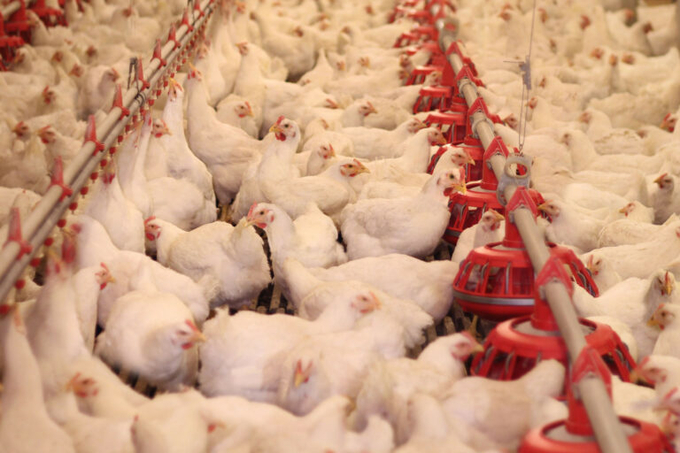November 21, 2025 | 22:24 GMT +7
November 21, 2025 | 22:24 GMT +7
Hotline: 0913.378.918
November 21, 2025 | 22:24 GMT +7
Hotline: 0913.378.918
Prime minister Donald Tusk is reportedly reluctant to meet the demands.

Poland’s largest poultry farm is Wróblewo, which can accommodate 2.5 million broilers. Photo: Canva
There are almost 1,300 industrial poultry farms operating in Poland, and 2 more farms are estimated to be built every month on average, according to the Stop Industrial Farms Coalition, an alliance of several ecological organisations. In 2023-2024, 32 new industrial farms were put into operation, while dozens are under currently construction, and 23 are up for a construction permit, the environmentalists said.
“The process [of poultry industry expansion] is gaining momentum. It has never been so bad before,” warned Bartosz Zając, a spokesman for the Stop Industrial Farms Coalition. “Mayors and commune heads are bombarded with applications for permits to build new hen houses.”
Citizens’ concerns
It is reported that residents of settlements located close to the industrial poultry farms repeatedly complain about stench, pollution and health hazards.
During the recent election campaign, Polish politicians of the prime minister Tusk’s political party promised to sort out the problem and introduce restrictions against poultry clusters – a format where several big poultry farms sit next to each other, sharing common infrastructure.
“The politicians forming the government today travelled around Poland just before the elections and promised to solve the problem of the farm clusters. Now they have power, but they are not keeping their promises,” explained Bartosz Zając, a spokesman for the Stop Industrial Farms Coalition.
A hen house of Europe
“Poland is becoming the hen house of Europe,” local online news outlet, Next Gazeta, reported, citing growing concerns of environmentalists and residents in several regions over ongoing poultry industry expansion.
The issue is considered particularly tense in Mazovia, especially in the Żuromin – Mława – Ciechanów triangle, one of the country’s largest broiler meat production centres. The largest farm, Wróblewo, can accommodate 2.5 million broilers, which makes 17 million birds per year. Local residents have a long story of urging the local authorities to cap the industry’s development, though farms are the key source of employment in this part of the country.
The ecologists admit that protests, however, rarely secure any meaningful result. “Even if residents react quickly [to news about poultry farm construction], there is no guarantee they will have any effect. The law in Poland is on the side of powerful corporations,” Zając said.
A change in the rules
However, most municipalities are due to adopt a development plan by the end of 2025, which the environmentalists explain should make it more challenging for poultry companies to get new construction permits.
“Breeders know this very well, so they try to get as much as they can. Things accelerated about half a year ago, and since then, we have received various reports regarding virtually all types of farms,” Zając added.
(Poultryworld)

(VAN) In a new study published in Trends in Biotechnology, researchers used a gene-editing technology called CRISPR to increase a fungus's production efficiency and cut its production-related environmental impact by as much as 61%- all without adding any foreign DNA.

(VAN) A top official in Beijing’s Cop delegation says China is committed to clean energy – but US’s absence is a problem.

(VAN) The Bangsamoro region’s inflation rate rose slightly to –1.3 percent in October 2025 from –1.5 percent in September, the Philippine Statistics Authority (PSA-BARMM) reported.

(VAN) FAO-led report says protecting and restoring forests is crucial to boosting climate-resilient agriculture, rural livelihoods and global food and water security.

(VAN) Flagship partnership secures additional GBP 16.9 million to strengthen forest monitoring, transparency and country support to 2030.

(VAN) After a turbulent year for international development, the aid and assistance landscape has shifted, with donors rethinking how, where and why they support sustainable development.

(VAN) A new tool for measuring the economic value of farm animal welfare improvements has been developed, potentially transforming how consumers, retailers and the government evaluate animal welfare policies.